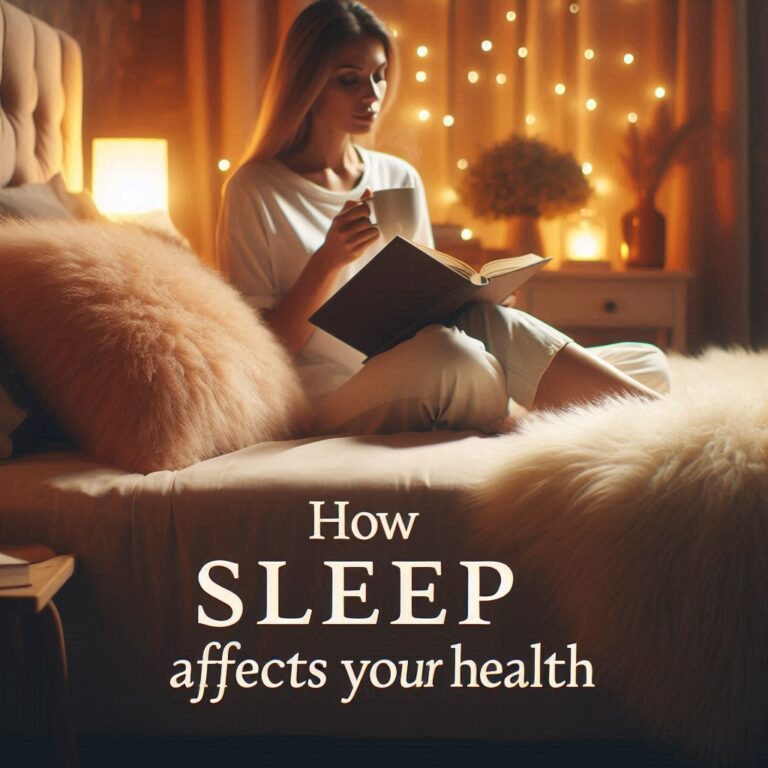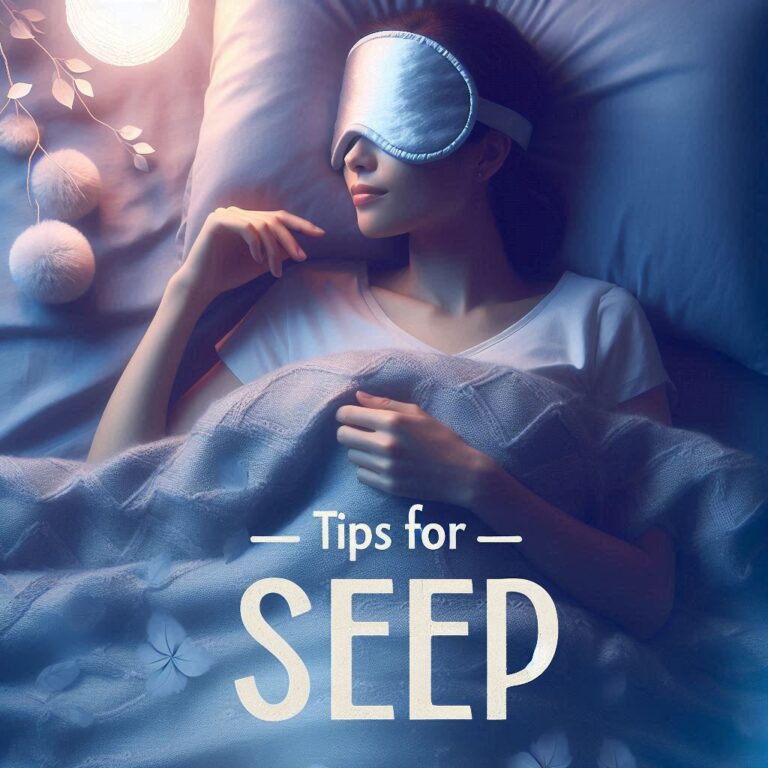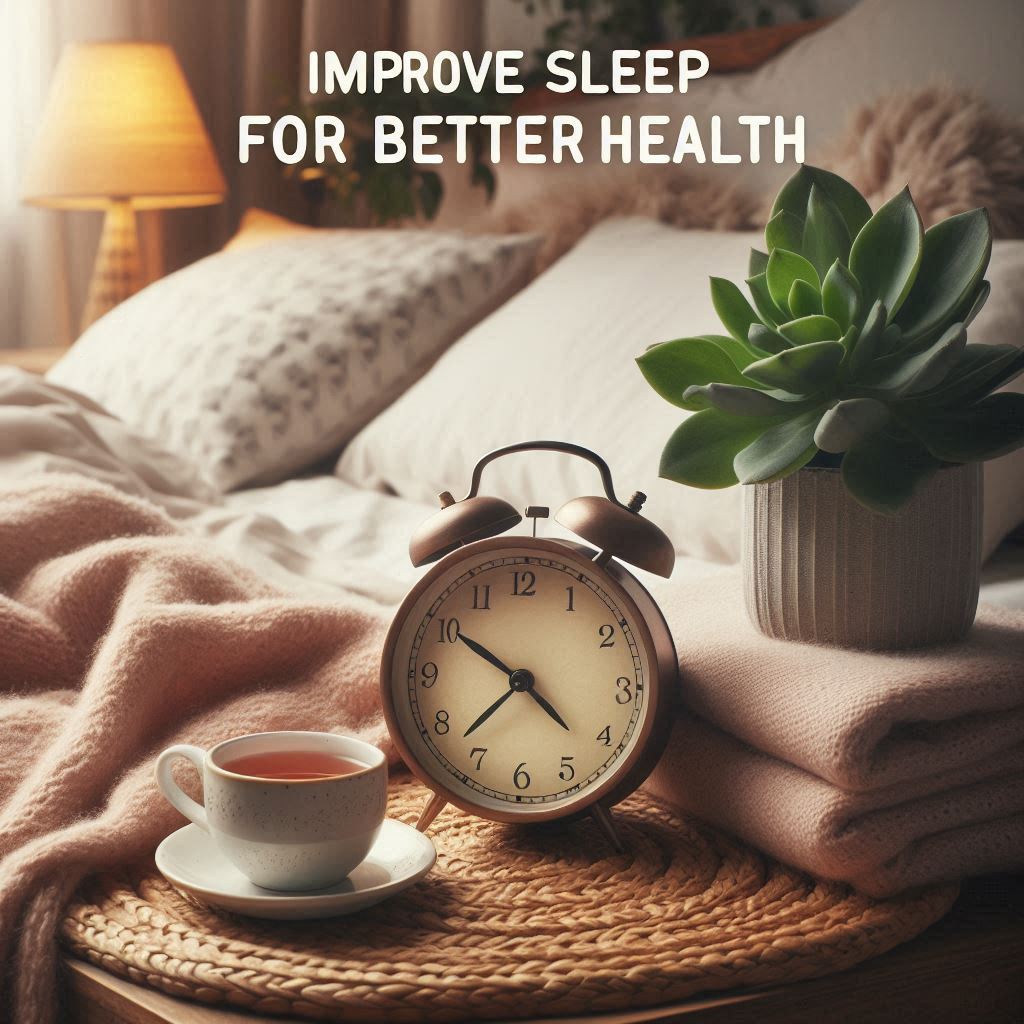How Sleep Affects Your Physical and Mental Health: Tips for Better Rest
Discover How Sleep Impacts Your Health & Proven Hacks to Improve Your Nighttime Routine
Alright, let’s be honest—how many times have you tossed and turned, staring at the ceiling in the middle of the night, wondering if you’ll ever fall asleep? That was me, about a year ago. It was 3 a.m., and I was still wide awake, mentally going over to-do lists that I’d probably forget by the time morning hit. Meanwhile, my dog was snoring away next to me like a pro. The next morning? I was a zombie, chugging coffee and snapping at everyone around me. Sound familiar?
That night, I realized something—this wasn’t just about being tired. My body was sending me signals, and I wasn’t listening. The foggy brain, the grumpiness, even that third sneaker I couldn’t find (where did it go?)—all of those were signs that I needed to change my sleep habits. If you’ve ever thought, “Can bad sleep really mess with my health?” or “Why do I always wake up at 3 a.m. and can’t get back to sleep?”—you’re not alone. Let’s take a closer look at why sleep really is the ultimate wellness hack and how we can all reclaim our nights.
Why Skimping on Sleep is Like Skipping Leg Day (And No One Wants Chicken Legs)
I think we can all agree—sleep is way more than just “resting” at night. It’s when your body gets to do some much-needed repairs and recharges for the next day. Here’s why cutting corners on sleep is like skipping a workout. You wouldn’t do that, right?
- Your Body Throws a Silent Tantrum
- Weight Gain Woes:
Have you ever noticed that you crave all the junk food after a sleepless night? I’m talking donuts, chips, and basically anything that’s loaded with sugar and fat. This is no coincidence. Sleep messes with hunger hormones, especially ghrelin, which makes you crave unhealthy food. So, when you don’t get enough sleep, your body tells you, “Hey, let’s eat all the stuff that’s bad for us.” Research has shown that people who don’t sleep enough are at a significantly higher risk of gaining weight and even developing obesity. Yikes. - Immune System Sabotage:
Ever pulled an all-nighter and found yourself catching a cold the next day? Yeah, poor sleep can drop your immune system’s effectiveness by up to 70%. Sleep is like your body’s “reset button” for fighting off germs, so when you don’t get enough, you’re basically inviting those pesky germs in. - Heart Health:
If you’re not getting 6+ hours of sleep a night, your heart’s working overtime. This increases inflammation and raises your blood pressure, which can put you at risk for heart disease in the long run. Think of your heart like an engine—it needs breaks too. If it’s constantly running without proper rest, it’s going to wear out faster.

- Your Brain Morphs Into a Cranky Toddler
- Memory Meltdowns:
We all know how frustrating it can be to forget things when you’re tired. But sleep is when your brain files away memories, like an organizer at a library. Without proper rest, those memories get lost in the shuffle. Think about that presentation you worked hard on—would you want to forget all that work? Sleep deprivation can seriously impact your ability to retain information. - Emotional Rollercoasters:
Raise your hand if you’ve ever cried over something silly—like a funny video on TikTok—when you’re sleep-deprived. That’s not just you being overly emotional. Your brain’s “emotional center,” the amygdala, goes into overdrive when you don’t get enough sleep. That means small things that usually wouldn’t bother you suddenly turn into big problems. - Creativity Crash:
Are you the creative type who loves brainstorming new ideas or solving problems? Well, if you’re not sleeping enough, your brain’s creativity is going to tank. Sleep plays a major role in problem-solving and coming up with innovative ideas. Even famous geniuses like Einstein knew the importance of a good nap. If you’re not sleeping well, your ability to think creatively will suffer.
Real-Life Wins: How Ordinary People Fixed Their Sleep (And You Can Too)
Case 1: “I Stopped Counting Sheep and Started Sleeping”
Sarah, 34, Denver:
“I was always running on fumes, juggling Zoom meetings and trying to manage my toddler’s 5 a.m. wake-ups. It was a mess. Then my doctor suggested I create a ‘wind-down ritual.’ No screens after 8 p.m., some herbal tea, and actually reading a book—like a real paper one, not Twitter. After two weeks of sticking to it, I started sleeping through the night. Game-changer.”
Case 2: “How I Beat Insomnia Without Pills”
Miguel, 42, Miami:
“I’d tried everything to fall asleep—melatonin, white noise, even hypnosis. But then I stumbled upon sleep restriction therapy on Reddit. The idea is simple: you only use your bed for sleep (no checking emails or watching TV), and you stop taking naps during the day. It helped retrain my brain, and now I’m sleeping better than ever. My life has completely turned around.”
Sleep Myths Debunked: What Actually Works (Spoiler: It’s Not Chamomile)
We’ve all heard some sleep myths, right? Let’s set the record straight:
- Myth 1: “You Can Catch Up on Sleep Later”
Sorry to burst your bubble, but binge-sleeping on weekends doesn’t fix the damage done during the week. Sure, you may feel a bit more rested after a long weekend sleep, but it’s just confusing your body’s natural sleep-wake cycle. Consistency in your sleep schedule is way more important. - Myth 2: “Alcohol Helps You Sleep”
It’s true that alcohol can make you fall asleep faster, but don’t be fooled—it ruins the quality of your sleep, especially REM sleep, which is the most restorative phase. So, while you might crash into bed after a couple of glasses of wine, you’ll wake up feeling like a raisin—dried out and totally exhausted. - Myth 3: “Snoring is Harmless”
If you or your partner snores loudly, it’s more than just annoying. Snoring could be a sign of sleep apnea, a condition that causes you to stop breathing in your sleep. While it may seem harmless, it can lead to major health issues if left untreated, including high blood pressure and heart disease.

Your Sleep Toolkit: 5 Unconventional Hacks for Better Zzz’s
- Embrace the “10-3-2-1” Rule
- 10 hours before bed: No caffeine.
- 3 hours: Stop eating.
- 2 hours: Quit work.
- 1 hour: Ditch screens.
This simple rule helps your body start winding down naturally. No more caffeine after lunchtime, no eating heavy meals late at night, and no work right before bed.
- Cool Down to Heat Up Sleep
A cool room is ideal for sleep. Try setting your thermostat to around 65°F (18°C), and use layers of blankets to keep cozy. Bonus tip: A weighted blanket can help you feel like you’re getting a big, comforting hug, which is proven to reduce anxiety and improve sleep. - Try the “Military Sleep Method”
This technique helps you fall asleep in 2 minutes—perfect for when you just can’t seem to unwind. Relax your face, drop your shoulders, exhale deeply, and imagine yourself lounging in a hammock. It might sound silly, but it works! - Snack Smartly
Instead of reaching for sugary snacks before bed, go for something like tart cherry juice or a banana. Both are naturally packed with sleep-enhancing nutrients like melatonin and magnesium. - Fix Your Light Exposure
Get outside for 15 minutes in the morning sunlight. It helps reset your circadian rhythm and tells your brain it’s daytime. This way, you’ll feel more alert during the day and get better sleep at night.
Conclusion: Sleep Like Your Health Depends on It (Because It Does)
Sleep isn’t a luxury; it’s the foundation of everything—better focus, improved mood, glowing skin (yes, really!), and a healthier body. So, tonight, try swapping Netflix for a book, ditch those late-night snacks, and let your brain get the reboot it deserves.
Your Turn: What’s your weirdest sleep hack? Share in the comments—I’d love to hear it. (Though I’m not quite ready to try sleeping with onions in my socks… unless it works, of course.)
Sweet dreams, fellow snoozers. 🌟

